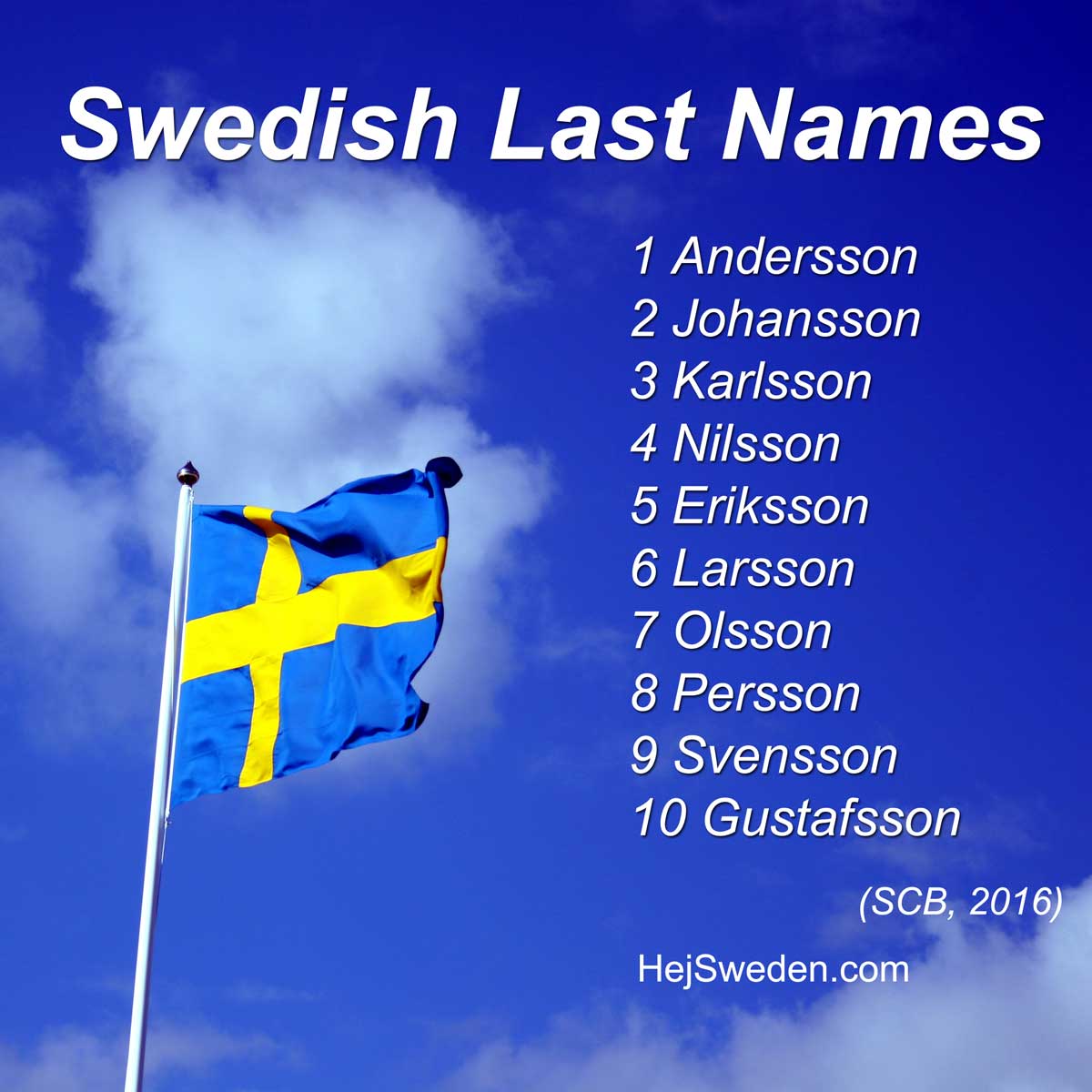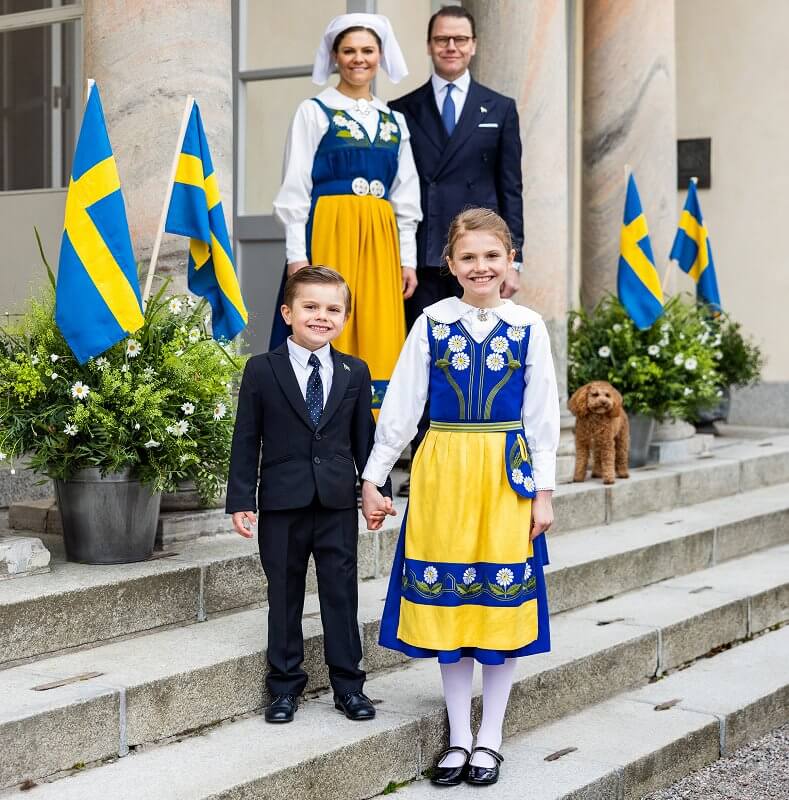Exploring The Rich Heritage Of Swedish Family Names
Swedish family names carry a profound significance that goes beyond mere identification. They are steeped in history, culture, and tradition, reflecting the lineage and ancestry of individuals. As Sweden has evolved over centuries, so too have its naming conventions, leading to a fascinating array of surnames that tell the story of the people who bear them. Understanding the origins and meanings behind these names is an enlightening journey into the heart of Swedish culture.
In Sweden, family names often reveal vital information about geographical locations, occupations, or even personal characteristics of ancestors. This naming practice has been influenced by various factors, including the patronymic system that was prevalent in the past. The transition from patronymics to fixed surnames has resulted in a rich tapestry of family names that are both unique and historically significant. As we delve deeper into the world of Swedish family names, we uncover the intriguing stories that lie behind each surname.
Furthermore, the exploration of Swedish family names not only enhances our understanding of Swedish heritage but also connects individuals to their roots. In a globalized world, where people often seek to understand their ancestry, these names serve as a bridge to the past, linking us to our forebears. Join us as we embark on this journey to explore the fascinating world of Swedish family names and discover what they reveal about the people, their histories, and their identities.
What is the Origin of Swedish Family Names?
The origins of Swedish family names can be traced back to the medieval period when the patronymic naming system was common. This system involved creating surnames based on the father's first name, often with the addition of "son" for males and "dotter" or "dottir" for females. For instance, if a father named Erik had a son named Johan, the son's surname would be Eriksson, meaning "son of Erik." This practice not only established a clear lineage but also reflected the social structure of the time.
How Did the Transition to Fixed Surnames Occur?
The shift from patronymic to fixed surnames in Sweden began in the late 19th century. This change was influenced by several factors, including urbanization and the need for official documentation. As people moved to cities and began to interact more with government institutions, it became essential to have stable surnames for record-keeping purposes. Consequently, many families adopted their patronymic names as fixed surnames, while others chose names based on geographical locations or occupations.
What Are Some Common Swedish Family Names?
Several Swedish family names have become widely recognized, each carrying its own unique history. Some of the most common Swedish surnames include:
- Andersson: Meaning "son of Anders," this name is one of the most common in Sweden.
- Johansson: Derived from the name Johan, meaning "son of Johan."
- Nilsson: Meaning "son of Nils," this surname is prevalent in Sweden.
- Eriksson: Meaning "son of Erik," this name has deep historical roots.
- Larsson: Derived from the name Lars, meaning "son of Lars."
Why Are Swedish Family Names Important for Genealogy?
Swedish family names play a crucial role in genealogy, helping individuals trace their ancestry and connect with their roots. By understanding the meaning and origin of family names, researchers can uncover valuable information about their ancestors' lives and the regions they came from. This process often involves examining historical records, such as church books and census data, to build a comprehensive family tree. The significance of Swedish family names in genealogical research cannot be overstated, as they serve as key pointers to familial connections and heritage.
How Do Swedish Family Names Reflect Cultural Identity?
Family names in Sweden are not merely labels; they embody cultural identity and pride. Many surnames are linked to specific regions or historical events, creating a sense of belonging and community among those who share the name. For instance, names derived from natural features, such as rivers and mountains, connect individuals to the landscape of Sweden. This geographic connection fosters a deep appreciation for the country’s natural beauty and history, reinforcing the bond between people and their heritage.
Can Swedish Family Names Provide Insight into Occupations?
Indeed, many Swedish family names offer insights into the occupations of ancestors. Names such as "Bergström" (mountain stream) or "Skogman" (forest man) suggest connections to nature and specific livelihoods. Similarly, surnames like "Smed" (smith) indicate trades that were prevalent in earlier generations. By analyzing these names, we can gain a greater understanding of the economic activities and lifestyles of our ancestors, showcasing how deeply intertwined family names are with social history.
What Role Do Swedish Family Names Play in Modern Society?
In contemporary Sweden, family names continue to hold significance, influencing personal identity and social interactions. While many individuals take pride in their heritage and the stories behind their surnames, others may seek to change or adopt new names for various reasons, including marriage or personal preference. The evolution of naming practices reflects broader societal changes and the ongoing dialogue between tradition and modernity.
Conclusion: Embracing the Legacy of Swedish Family Names
As we conclude our exploration of Swedish family names, we recognize the rich tapestry of history, culture, and identity they represent. From their origins in the patronymic system to their role in modern society, these names carry the weight of ancestral stories and connections. Whether you are delving into your genealogy or simply appreciating the beauty of Swedish names, understanding their significance is a journey worth taking. Embrace the legacy of Swedish family names and discover how they connect us to our past while shaping our present and future.
Understanding What Is Easter In 2024: A Celebration Of Renewal


